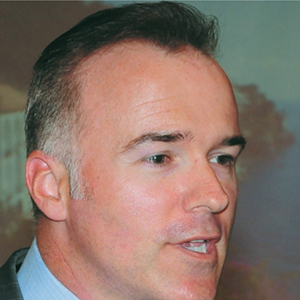
Front of the Room – Brian Lange
Tips to help you overcome the change challenge
 A while back, I delivered a presentation in which I had a clear goal to persuade an audience to view a process in a particular way (to see the need for change). It was in an environment where several audience members had strong opinions about the process in question, as well as likely skepticism or uncertainty toward me, the presenter.
A while back, I delivered a presentation in which I had a clear goal to persuade an audience to view a process in a particular way (to see the need for change). It was in an environment where several audience members had strong opinions about the process in question, as well as likely skepticism or uncertainty toward me, the presenter.
Many readers will no doubt relate to similar situations either faced during their own careers or likely to be faced in the future.
I’d like to share some tips on how I faced this challenge, with the hope that perhaps it will be instructive for others.
- Get clear on defining (with the audience) the issue, topic or process at hand: Include the audience in this process — let them “mess around” with the topic a bit. I had table teams discuss and present their answers to “What is the purpose of X?” (the process in question).
I welcomed each team’s answers — not looking for the “right” answer (this is key!). Then, I shared my simple, clear definition as a contribution to the discussion (in the hopes we could reduce a lot of the distracting or “negative” views on the process). - Explore limitations/shortcomings of current state: This helps move the audience toward seeing the need for change (but, don’t “sell” your solution, yet!). Talking points should be clear and ideally based on objective insights/perspectives.
Author Peter Block advises, “See the reality of the current situation. See the suffering and the costs of what exists now.” Without this, people won’t see the need for change. - Define an “ideal” state (process, in my case): This should be realistic, fairly simple and achievable. Include impacts on various stakeholder groups.
Provide perspective on how the business potentially benefits. This is not a solution, but a general description of what an ideal solution contains or aspires to. - Share your proposed new path: Introduce it as an early-stage idea, in need of additional input from others to ensure it is well-rounded. Be sure to proactively address (show you hear them) the potential concerns stakeholder groups may have.
- Do an activity that lets your audience contribute their thoughts for implementing the change: This helps provide a sense of “ownership” for audience members, and ensures you’ll ultimately create an even better final project!
In my case, I had small sticky pads on each table and asked people to write one idea per sheet (as many sheets as they wanted), and I collected and posted them on the wall. Then, I invited one person from each table to come up to the wall as a team, where I told them they could move the sheets at will to see if common “buckets” or groupings emerged.
By participating in this activity, audience members contributed their ideas – a positive step in the change process. I then used these contributions in shaping the final process. - Convey reassurances and gratitude: Change is always hard. By expressing gratitude for the audience input and open-mindedness — and reassuring them of the mandate(s) they’ve now given you – you will have moved in a positive, collaborative direction!
Conclusion
Any presentation is a uniquely personal endeavor, and I am loath to provide “formulas” for success. My hope in sharing these tips with you is to attempt to blend elements of change management and influence with structuring an audience “experience.”
It’s important to remember that you are likely a bit farther along the change curve than your audience (in seeing the need for the new approach). So, remember to engage them and help them along the curve — together!
 Brian Lange is with Perim Consulting and serves as lead facilitator for LTEN PrimeTime! For Trainers Core and Masters Workshops. Email Brian at blange@perim.com or connect with him on LinkedIn at www.linkedin.com/in/brianplange.
Brian Lange is with Perim Consulting and serves as lead facilitator for LTEN PrimeTime! For Trainers Core and Masters Workshops. Email Brian at blange@perim.com or connect with him on LinkedIn at www.linkedin.com/in/brianplange.








